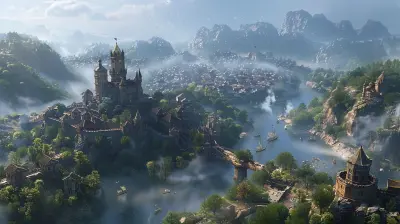Survive or Thrive: Strategies for Long-Term Survival in Games
16 October 2025
What separates a good gamer from a legendary one? It’s not always lightning reflexes or encyclopedic knowledge of every corner of the map. Sometimes, it’s something deeper. It’s about lasting the long haul, enduring the grind, and making strategic decisions that don’t just keep you alive—but help you thrive.
Whether you’re braving the zombie-infested wilds of DayZ, building a civilization from scratch in Minecraft, or fighting for survival in harsh alien worlds like Subnautica, long-term survival is the name of the game.
But here's the question: are you just surviving, or are you thriving?
In this guide, we’re going to break down the core mindset shifts and practical strategies that will help you not only stay alive in your favorite survival and strategy games, but help you build an empire, dominate the servers, and become a legend in the virtual world.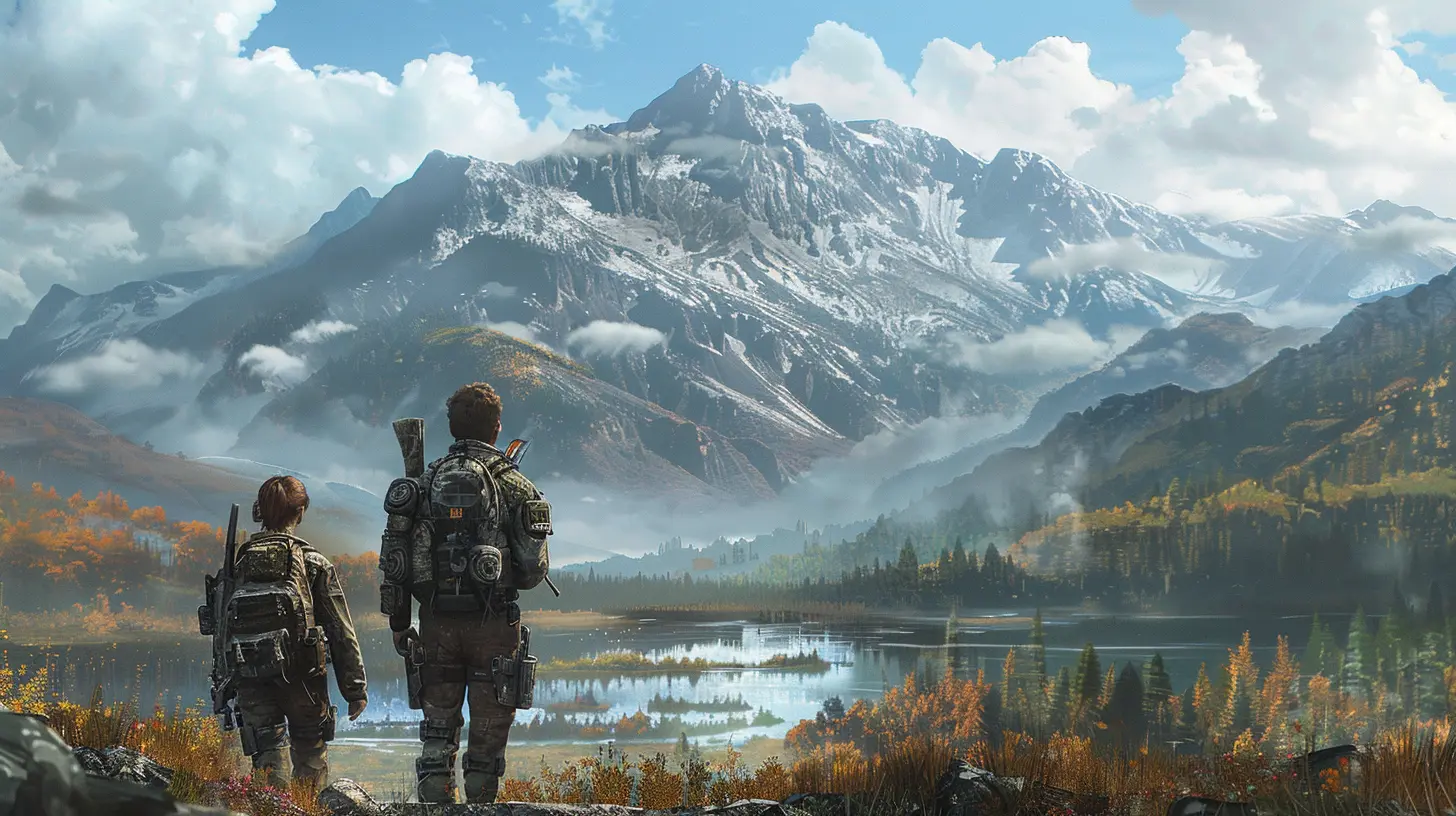
Survival vs. Thriving: What's the Difference?
Let’s break it down.Surviving is about the basics—food, health, and not dying. It’s short-term thinking. You fix problems as they come, react to threats, and stay just one step ahead of the chaos.
Thriving? That’s a whole different game.
Thriving means thinking long-term. It means building systems, planning for the future, and making your environment work for you. It’s operating with purpose instead of reacting with panic. You don’t just dodge danger—you build defenses. You don’t just scavenge—you produce.
Think of it like this: surviving is like camping in a storm. Thriving is building a five-star resort in the jungle.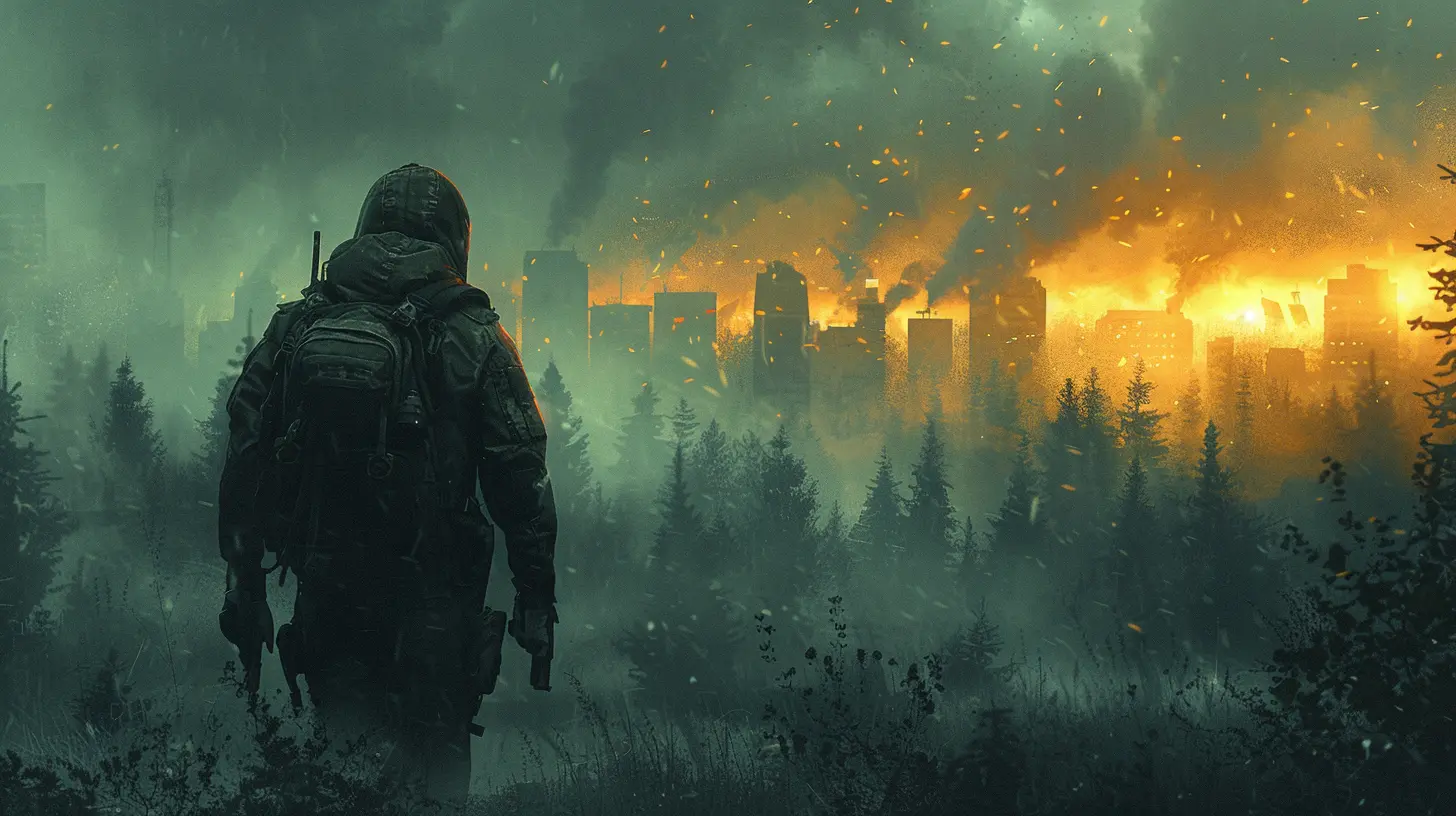
The Mindset Shift: From Panic to Planning
Every survival game starts the same—chaos, confusion, and a lot of running around half-naked, chasing pigs for food.We’ve all been there.
But the champions? They switch gears fast. Once the basics are covered, they start thinking five steps ahead.
Ask yourself:
- What happens if this food source runs out?
- Is this shelter good enough for the next weather event or enemy wave?
- Should I start investing in crafting or exploring better tools and tech?
The sooner you stop reacting and start planning, the sooner you go from barely scraping by to building something amazing.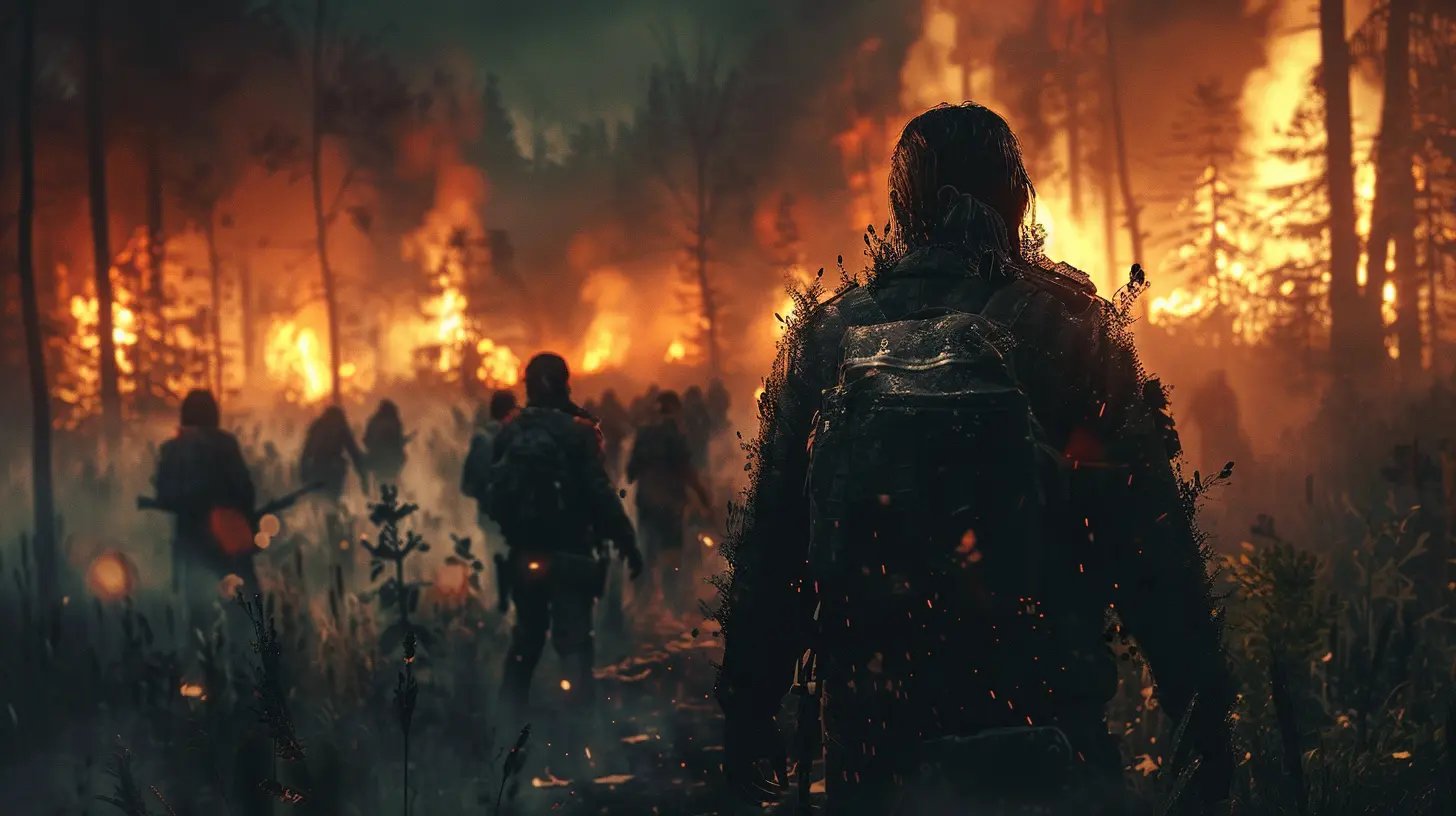
Build Smart, Not Just Safe
In most survival games, your base is your lifeline. But too many players build something quick and ugly, just enough to survive the first threat.Here's a better way to think about it:
- Location matters: Is your base on a resource-rich area? Is it defensible? Close to water, animals, or rare loot?
- Think layers: Don’t just slap four walls and a roof together. Build in stages. Add traps, fences, watchtowers, backup exits.
- Efficiency is king: Organize your base so you’re not wasting time running all over. Have systems for food, water, weapons, storage, and upgrades.
A well-built base is like your castle. Defend it like royalty, and treat it like your long-term home—not a motel.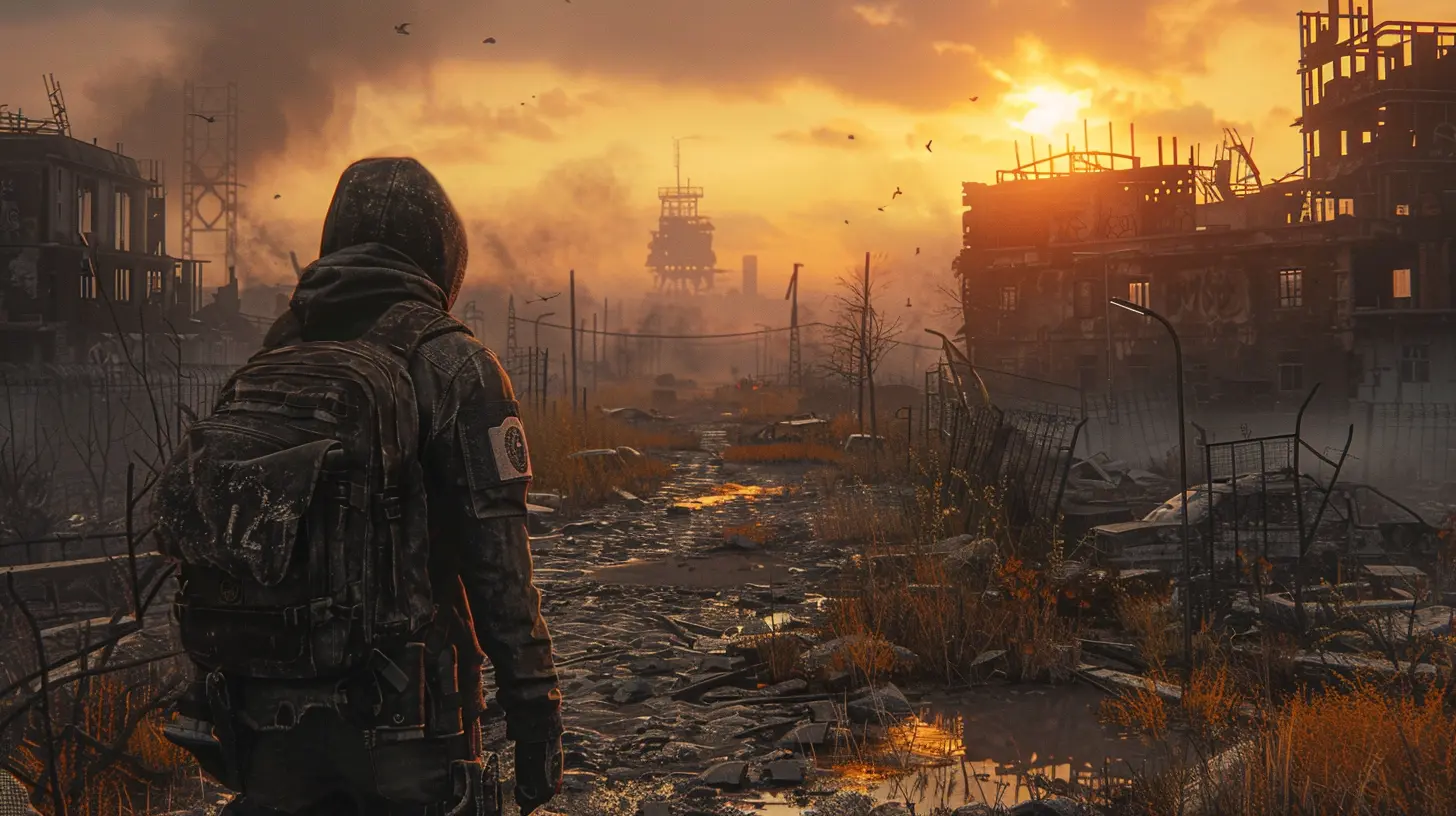
Resource Management: More Than Just Hoarding
Ever played with someone who keeps everything “just in case”? Yeah… that can backfire.Smart resource management is about balance. Here’s how to stay on top of your game:
- Rotate your stock: Use and replace. Don’t let food rot or gear degrade when it could’ve helped you.
- Upgrade wisely: Don’t just blow all your resources on that shiny diamond sword. Make sure you’ve got the basics covered first.
- Create surplus: If you’re always on the edge of starvation or low on ammo, you’re going to burn out fast.
When you manage resources like a pro, you turn survival into sustainability. Sustainability breeds domination.
Master the Art of Preparation
Let’s talk about one of the most underrated survival tips: prepare before danger comes.This means:
- Stocking up during quiet times
- Reinforcing your base before blood moons or raids
- Crafting extra tools and armor
- Setting traps and fallback zones
Successful long-term play thrives on one golden rule: always be ready.
If you know a big boss is coming, build that base up like your life depends on it—because it does.
Know Your Environment
Every survival game has its own world. Whether it’s a cold wasteland, a scorching desert, or an alien ocean, thriving means understanding your environment.Study patterns. Watch the wildlife. Learn when the storms hit or when the night spawns get aggressive. Are there safer zones? High-risk, high-reward areas?
Knowledge is power. The more you know about your surroundings, the more you can manipulate them to your advantage.
Evolve With the Game
Long-term survival isn’t static. It’s a journey. Your strategies need to evolve as the world changes.Maybe early game is all about food and shelter, but mid game? Now you need better weapons, transportation, farming systems, automation.
Eventually, you’ll shift from survival mode to controller of your domain.
Stay curious. Keep exploring new mechanics. Upgrade your tech. And don’t be afraid to abandon old strategies that no longer serve you.
Adaptation is the secret sauce to thriving.
Team Up or Go Solo?
This one’s a matter of preference, but let’s be real—humans are stronger in numbers.In multiplayer survival games, thriving often means finding the right partners. Not just warm bodies, but teammates who think strategically, share resources, and communicate well.
Pro tip: Trust is gold in survival games. Choose your allies wisely—or prepare for betrayal.
On the flip side, going solo forces you to master every aspect of survival. It’s tougher, but incredibly rewarding. If you do go it alone, double down on stealth, efficiency, and preparation.
Mind the Grind: Avoid Burnout
Ever felt like survival games start to feel like a second job? Yeah... that's burnout creeping in.Here’s how to avoid it:
- Set mini-goals. Don’t try to do everything in one session.
- Celebrate small wins. That upgraded water purifier? Big deal.
- Mix it up. Explore new areas, try new builds, or switch game modes.
Remember, thriving doesn’t mean endless grinding. It means playing smart and enjoying the process.
Learn From Every Death
Every time your character dies, it leaves behind a story and—more importantly—a lesson.Did you get too cocky and go into the cave without supplies?
Did you ignore those warning signs about the toxic gas zone?
Or maybe, just maybe, you forgot to bring that extra medkit... again?
Failure is part of the game. But thriving means learning from those failures.
Keep a mental (or actual) journal of what went wrong. Adjust. Improve. Try again.
In the end, every loss is fuel for your next comeback.
Late Game: Turn Survival Into Legacy
After you’ve built your fortress, gathered resources, and unlocked most of the tech tree… what’s next?This is where a lot of players hit a wall. But it doesn’t have to end there.
The real thrill? Creating something lasting.
Build the most epic base your server has ever seen. Tame every creature. Automate every system. Start helping new players—or dominating the PvP scene.
Leaving a legacy is the ultimate form of thriving. When your name becomes legendary in that game world, you know you’ve gone way beyond just surviving.
Final Thoughts: Choose to Thrive
Survival games are more than just hunger bars and health kits. They’re mental challenges, creativity tests, strategic opportunities.Every time you load up a world, you get to choose: panic or plan? React or evolve? Survive… or thrive?
You’ve got the tools. You’ve got the knowledge. Now go out there and build your empire, tame the wilds, conquer the chaos.
Because in the world of survival games, the legends aren’t the ones who made it through the night…
They’re the ones who turned darkness into dominion.
all images in this post were generated using AI tools
Category:
Survival GamesAuthor:

Tina Fisher
Discussion
rate this article
1 comments
Helen Phelps
How do survival strategies evolve in gameplay?
October 19, 2025 at 4:49 PM

Tina Fisher
Survival strategies evolve in gameplay through player experimentation, adaptation to challenges, and the incorporation of mechanics that promote resource management, cooperation, and strategic planning. As players encounter new threats and environments, they refine their approaches to optimize survival and success.

